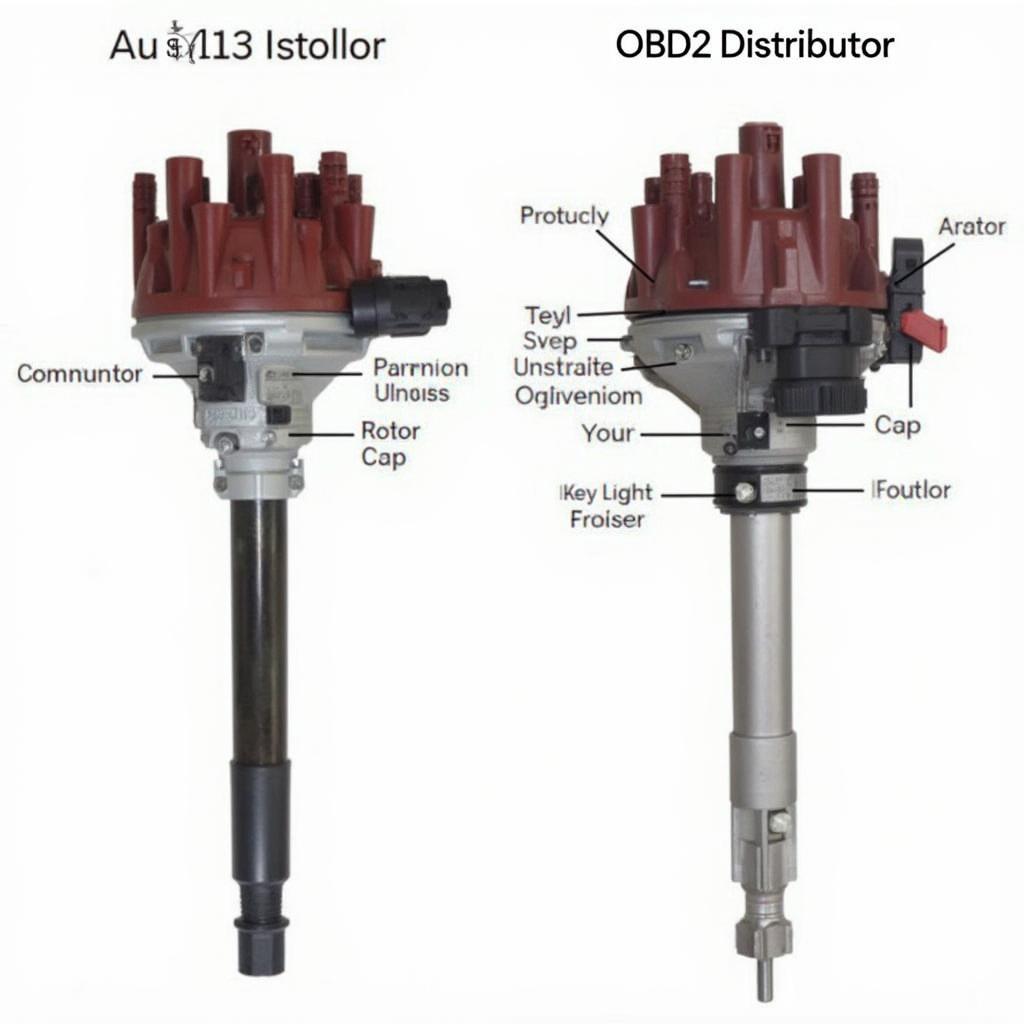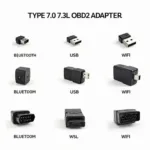Using an OBD2 distributor on an OBD1 ECU is a common topic among car enthusiasts, particularly those involved in engine swaps or upgrades. This article dives deep into the compatibility challenges, potential solutions, and important considerations when attempting this modification. We’ll explore the differences between OBD1 and OBD2 systems, the implications of mixing components, and provide guidance for navigating this complex process.
Understanding the Differences: OBD1 vs. OBD2
Before we delve into the specifics of using an OBD2 distributor on an OBD1 ECU, it’s crucial to understand the fundamental differences between these two systems. OBD1 (On-Board Diagnostics 1) is an older system primarily relying on open-loop control, using pre-programmed fuel maps and limited sensor inputs. OBD2 (On-Board Diagnostics 2), introduced in the mid-1990s, utilizes closed-loop control with more sophisticated sensors and real-time adjustments for improved emissions control and fuel efficiency. The distributor plays a critical role in both systems, but the signal it sends to the ECU differs significantly. OBD1 distributors typically generate a single, interrupted signal, while OBD2 distributors often provide a more complex signal with information about crankshaft position and camshaft position.
This difference in signal processing is the primary challenge when trying to use an OBD2 distributor with an OBD1 ECU. The OBD1 ECU isn’t designed to interpret the more complex signals from an OBD2 distributor, potentially leading to misfires, poor performance, and even engine damage.
Can You Use an OBD2 Distributor on an OBD1 ECU?
The short answer is: it’s generally not recommended. While some limited success stories might exist, the inherent incompatibility between the two systems makes it a risky proposition. The obd1 ecu with obd2 distributor combination often requires significant modifications and workarounds, which may not be reliable or practical for most users.
Exploring Potential Solutions and Workarounds
Despite the challenges, some solutions might enable using an OBD2 distributor on an OBD1 ECU. These often involve converting the OBD2 distributor signal to a format compatible with the OBD1 ECU. This could involve using a signal converter or modifying the distributor itself. However, such modifications require a deep understanding of both systems and should be undertaken with caution.
Another approach involves using an obd2 to obd1 ecu jumper harness. However, this approach typically addresses ECU compatibility in engine swaps rather than specifically enabling the use of an OBD2 distributor with an OBD1 ECU.
Why Consider an OBD1 to OBD2 Conversion?
Some car enthusiasts consider converting their entire system from OBD1 to OBD2. While this is a more involved process, it offers several benefits, including access to more advanced tuning options, improved diagnostics, and potentially better fuel efficiency. obd1 to obd2 conversion harness honda is a relevant search for Honda owners looking into this option.
Choosing the Right Components: Distributors and ECUs
If you’re considering upgrading or modifying your engine management system, selecting the right components is crucial. Researching compatible ECUs like the honda p28 ecu obd2 and understanding how they interact with various distributors is vital for a successful outcome.
Ensuring Proper Wiring and Sensor Functionality
Correct wiring is paramount when dealing with any automotive electrical system, especially when combining components from different generations. Ensuring proper sensor functionality, such as the primary 02 sensor wiring obd2 civic, is crucial for optimal engine performance and emissions control.
Conclusion: Navigating the OBD2 Distributor on OBD1 ECU Challenge
Using an OBD2 distributor on an OBD1 ECU presents significant compatibility hurdles. While workarounds exist, they often involve complex modifications and may not provide reliable long-term solutions. Thorough research, careful planning, and a deep understanding of both systems are essential before attempting this modification. If you’re unsure, consulting with a qualified automotive technician specializing in engine management systems is highly recommended. Carefully consider the potential benefits and risks before proceeding with an obd2 distributor on obd1 ecu setup.
Need help? Contact us via WhatsApp: +1(641)206-8880, Email: [email protected] or visit us at 789 Elm Street, San Francisco, CA 94102, USA. Our 24/7 customer support team is ready to assist you.

